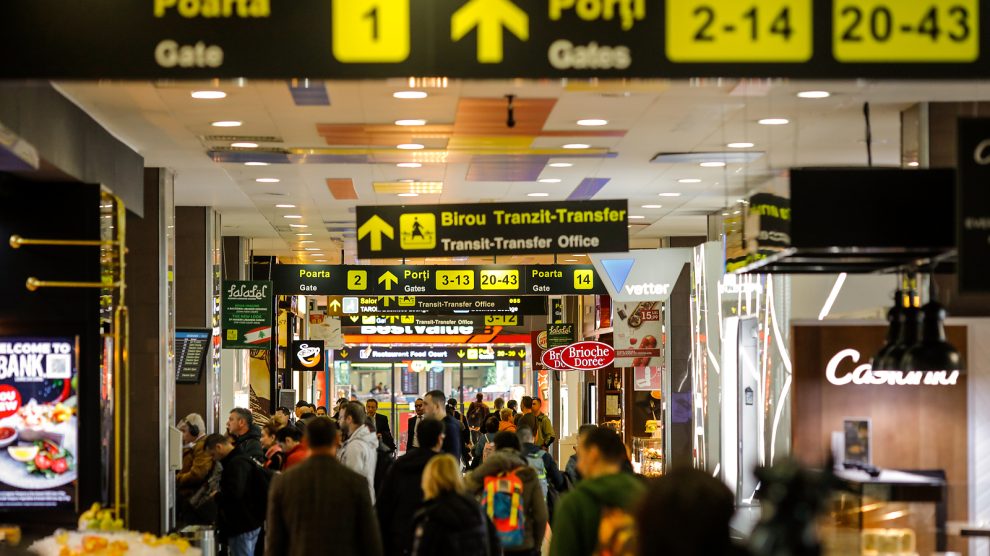Romania’s government appears ready accept partial Schengen membership, it’s Bulgarian counterpart less so.
Reports on December 9 that Austria was ready to soften its stance over the entry of Bulgaria and Romania to the European Union’s border-free Schengen zone provoked very different reactions in the capitals of the two countries.
In Bucharest, the government was jubilant; Prime Minister Marcel Ciolacu hailed the news as a major breakthrough, saying that, “We’ve broken the ice. Austria has become more flexible in its position. Romanians will no longer have to wait in long queues to cross borders.”
- In its bid for cohesion, the EU needs to fully integrate South-Eastern European member states
- Bulgaria and Romania are finally rid of the CVM, but Schengen membership remains elusive
- ‘Ukraine, Moldova, Western Balkans belong in the EU’
In Sofia meanwhile, Bulgaria’s Prime Minister Nikolay Denkov called Austria’s offer—of allowing the two countries to join Schengen in two stages, firstly for air traffic (dubbed ‘Air Schengen’) and only later, at an unspecified time, with land borders—as ”illogical”, rejecting it out of hand.
Austria—which has been blocking Bulgaria and Romania’s Schengen entry for more than a year—has also made demands of the two countries that Sofia at least believes are unfair.
Vienna wants the EU to triple the number of Frontex border protection agents in Bulgaria, additional border checks between Bulgaria and Romania, and Hungary and Romania, and is insisting that the two countries must host refugees, especially Afghans and Syrians, who make their way to Austria through either Bulgaria or Romania.
The European Commission has long made it clear that both and Romania meet the technical criteria required for full Schengen membership, with both Sofia and Bucharest vehement that Austria’s veto is purely political. “A decision that willingly ignores the fact that the conditions for membership have been met,” said Romania’s then Interior Minister Lucian Bode last year.
Andrey Novakov, a Bulgarian MEP, this week told Romanian news agency Spot Media that Bulgarians are “tired” of the “double standards” applied to his country. “We [already] fulfill all the criteria for Schengen membership. Internal political disputes [in Austria] should not impact our membership.”
In September, the Commission formally closed the so-called Cooperation and Verification Mechanism (CVM) for Bulgaria and Romania, introduced at the accession of both countries to the European Union in 2007 as a transitional measure to facilitate progress in the fields of judicial reform and anti-corruption, as well as on organised crime for Bulgaria. The CVM had long been used as an excuse for keeping the two countries out of Schengen.
Economic damage, security impact
While partial Schengen entry would be a boon for air passengers, it fails to address the real issues caused by long delays at land borders, particularly the Greek-Bulgarian, Bulgarian-Romanian, and Romanian-Hungarian borders. Full Schengen entry would at a stroke remove these borders, allowing for the seamless flow of goods and people. Hauliers would see costs fall considerably as lorries would no longer be forced to spend hours, sometimes days, waiting to cross. According to the Romanian Union of Road Transporters (UNTRR) lorry drives often have to wait more than 72 hours to cross the border between Bulgaria and Romania.
Ciolacu has put the damage to Romania’s economy caused by the delays at two per cent of GDP, around 5.7 billion euros. According to the European Parliament’s research service, when two countries are members of the Schengen area, bilateral net trade increases by 0.09 per cent every year.
Another study, from Warwick University in the UK, shows that the Schengen area significantly decreases the trade frictions between partners and facilitates cross-country trade integration.
There is also a security element to Bulgaria and Romania’s Schengen entry. Both countries are NATO members and their full Schengen membership would ease the flow of military support to—and exports from—Ukraine. Some reports in Romania suggest that the United States has been quietly pressuring Austria (not a NATO member) to soften its stance for this specific reason.
Bulgaria holds out for full membership
At a meeting in Slovenia earlier this week, the interior ministers of Austria, Bulgaria and Romania met to discuss the Schengen issue, after which Romania’s Interior Minister Cătălin Predoiu said that talks had been “positive” and that “progress had been made”.
Schengen membership for the two countries is not on the agenda of this week’s European Council summit in Brussels. An emergency summit of interior or justice ministers could be held before the end of the year to nod through ‘Air Schengen’, should Bulgaria and Romania agree to Austria’s conditions.
Bulgaria appears increasingly likely to hold out for full membership, however. “Bulgaria and Romania have fulfilled all the criteria for full Schengen membership, and the results of the last mission to Bulgaria, conducted by experts from the member states, including Austria and the Netherlands, prove this again,” said Bulgaria’s Interior Minister Kalin Stoyanov after the meeting in Slovenia, adding that that the accession of Bulgaria and Romania to Schengen will contribute to its consolidation and “better functioning”.
This raises the real possibility of only Romania being partially admitted, which—should it come to pass—could ironically lead to even longer queues at the Bulgaria-Romania border as Austria would insist on even tighter controls.
For the long-suffering drivers who have to regularly cross that border, the agony looks set to continue.
Unlike many news and information platforms, Emerging Europe is free to read, and always will be. There is no paywall here. We are independent, not affiliated with nor representing any political party or business organisation. We want the very best for emerging Europe, nothing more, nothing less. Your support will help us continue to spread the word about this amazing region.
You can contribute here. Thank you.


